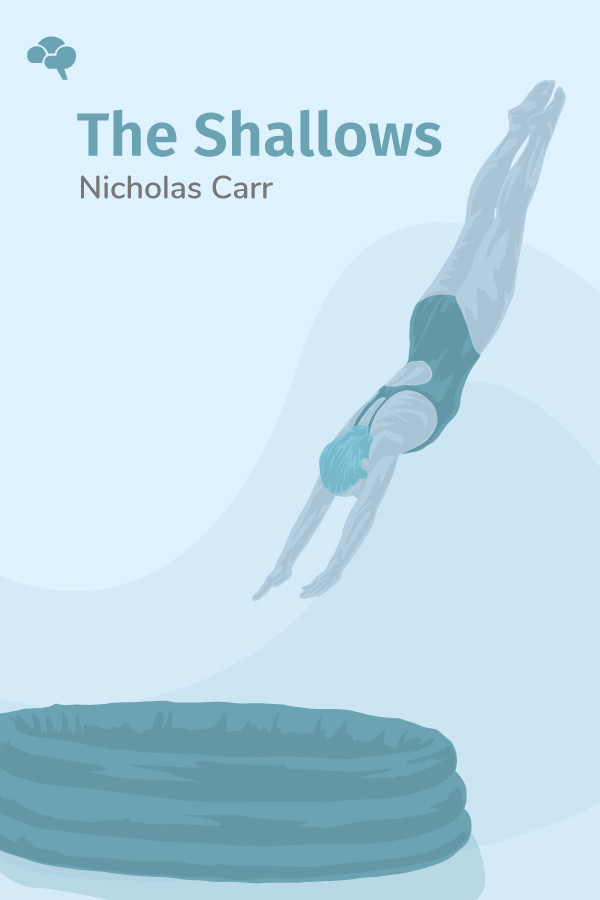Nicholas Carr
Nicholas G. Carr (born 1959) is an acclaimed writer whose work focuses on the intersection of technology, economics, and culture. His books, including the Pulitzer Prize finalist The Shallows: What the Internet Is Doing to Our Brains, have been translated into more than twenty-five languages. He is a visiting professor of sociology at Williams College in Massachusetts and was the former executive editor of the Harvard Business Review. In 2015, he received the Neil Postman Award for Career Achievement in Public Intellectual Activity from the Media Ecology Association.
A New York Times bestseller when it was first published in 2010 and now hailed as “a modern classic,” The Shallows remains a touchstone for debates on technology’s effects on our thoughts and perceptions. A second edition of The Shallows was published in 2020. Carr’s 2014 book The Glass Cage: Automation and Us, which the New York Review of Books called a “chastening meditation on the human future,” examines the personal and social consequences of our ever growing dependency on computers, robots, and apps. His latest book, Utopia Is Creepy, published in 2016, collects his best essays, blog posts, and other writings from the past dozen years. The collection is “by turns wry and revelatory,” wrote Discover.
Carr is also the author of two other influential books, The Big Switch: Rewiring the World, from Edison to Google (2008), which the Financial Times called “the best read so far about the significance of the shift to cloud computing,” and the controversial polemic Does IT Matter? (2004).
Carr has written for many newspapers, magazines, and journals, including The Atlantic, the Wall Street Journal, the New York Times, the Washington Post, Wired, Nature, and MIT Technology Review. His essays, including “Is Google Making Us Stupid?” and “The Great Forgetting,” have been collected in several anthologies, including The Best American Science and Nature Writing, The Best Spiritual Writing, and The Best Technology Writing.
Carr is a former member of the Encyclopedia Britannica’s editorial board of advisors, was on the steering board of the World Economic Forum’s cloud computing project, and was a writer-in-residence at the University of California at Berkeley’s journalism school. Since 2005, he has written the popular blog Rough Type. He holds a B.A. from Dartmouth College and an M.A., in English and American Literature and Language, from Harvard University.
In addition to speaking at a wide range of professional and academic events, Carr has appeared as a commentator on many television and radio programs, including NPR’s All Things Considered and OnPoint, the PBS NewsHour, MSNBC’s Morning Joe, CBS Sunday Morning, and the Colbert Report.
The Shallows: What the Internet Is Doing to Our Brains
Whether you think the internet is ushering in an intellectual apocalypse or simply making daily tasks easier and information more accessible, no one can deny its influence. Like the many innovations that came before it—including the map, the clock, the scroll, and even the book—the internet has proven immensely useful and quietly powerful. Writer and Pulitzer Prize finalist Nicolas Carr reveals the truth behind our screens in his book, The Shallows. Drawing upon history, neuroscience, and cultural research, Carr proves the internet isn’t a static repository of information, but an active agent in the remaking of the human brain—whether its users like it or not.
Bio information sourced from Wikipedia

